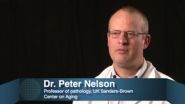(Press-News.org) PROVIDENCE, R.I. [Brown University] -- A new study documents the stark health dangers of the male sex trade in the streets, hotels, and discotheques of Mexico City. Lead author and health economist Omar Galárraga's point in making the grim assessment of the legal but perilous market is to find an incentive that might reduce the spread of HIV and other diseases in the nation's community of men who have sex with men.
"It's a very highly at-risk population," said Galárraga, assistant professor of health services, policy and practice in the Brown University School of Public Health. For the study, published in the Journal of the International AIDS Society, his team conducted interviews and infection tests with 267 male sex workers who come to the city's Clínica Especializada Condesa.
Sexually transmitted infections are prevalent among the workers, the study reports. In the sample, 38 percent had HIV, 21 percent had syphilis, 10 percent had chlamydia, 3 percent had active hepatitis B, 2 percent had gonorrhea, and 1 percent had hepatitis C.
Many of the sex workers were not aware of or were confused about their health status. Of the 100 confirmed by testing to have HIV, 14 did not know if they had it, 11 said they did not have it, and another 16 didn't want to say (even though they agreed to testing). Similar rates applied to the other diseases.
The high prevalence of disease (and the lack of personal awareness) is serious because the workers make many sexual contacts every week. On average, the sex workers reported engaging in sex with more than four paying customers and about three non-paying partners in the week prior to their interview. The sex partners were almost always male.
Incentives and disincentives for condom use
One of the best ways to prevent the spread of disease is condom use, but the study found condom use was also lacking. The workers reported using condoms only 78 to 84 percent of the time.
Why isn't condom use more common, given the high risk of becoming seriously ill? One reason the study found is that sex workers can make 34.5 percent more money, on average, if they forgo the condom. The median price they charged for sex was about $32, but workers can earn more than $40 without protection.
With all this information in hand, Galárraga and his colleagues have been working to test an idea for countering the market incentive to forgo condoms and to keep workers connected to health care services, such as infection testing. Their idea is to offer payments in the form of food and grocery vouchers twice a year on the condition that workers use condoms to stay healthy. If follow-up testing shows they don't acquire new diseases, they can get vouchers every six months valued at as much as $75. In a prior study, Galárraga and his colleagues found that workers said they would be willing to change behavior in exchange for that much.
"Avoiding clients who pay higher prices for unprotected sex implies monetary losses for male sex workers," the researchers wrote in the study. "Thus compensation in the form of economic incentives for self-protection can offer one method for reducing risk behaviors and improving individual and population health."
The results of a pilot trial are pending. The researchers hope to expand testing to a wider group. Since performing this study they have been in contact with hundreds more sex workers.
In addition to Galárraga, the study's authors are Sandra G. Sosa-Rubí, Carlos Conde-Glez, and Sergio Bautista-Arredondo of the Instituto Nacional de Salud Pública in Mexico; Andrea González, Florentino Badial-Hernández, and Luis Juárez-Figueroa of Clínica Especializada Condesa in Mexico City; and Caroline Kuo, Don Operario, and Kenneth Mayer of Brown University.
INFORMATION:
The U.S. National Institutes of Health (grants R21HD065525, K01 MH096646), The Mexican National Center for HIV/AIDS Control and Prevention (CENSIDA), and Brown University supported the research.
Since the 1850's scientists have known that crystalline materials are organized into fourteen different basic lattice structures. However, a team of researchers from Vanderbilt University and Oak Ridge National Laboratory (ORNL) now reports that it has discovered an entirely new form of crystalline order that simultaneously exhibits both crystal and polycrystalline properties, which they describe as "interlaced crystals."
Writing in the Nov. 14 issue of the journal Nature Communications, the researchers describe finding this unusual arrangement of atoms while studying ...
A team of Cardiff University researchers have made a breakthrough in helping scientists discover hundreds of black holes throughout the universe.
When two detectors are switched on in the US next year, the Cardiff team hope their research will help scientists pick up the faint ripples of black hole collisions millions of years ago, known as gravitational waves.
Black holes cannot be seen, but scientists hope the revamped detectors - which act like giant microphones - will find remnants of black hole collisions.
Led by Dr Mark Hannam from the School of Physics and Astronomy, ...
(PHILADELPHIA) - Although radiation treatments have become much more refined in recent years, it remains a challenge to both sufficiently dose the tumor while sparing the surrounding tissue. A new anti-cancer drug, already in clinical development, may help address this issue by protecting normal cells - but not the cancer - from the effects of radiation. The research, published November 14th in Molecular Cancer Therapeutics, further suggests this drug may also be useful in treating accidental exposure to radiation.
"It was a stroke of luck that the drug that most effectively ...
Nonsmokers sitting in an automobile with a smoker for one hour had markers of significantly increased levels of carcinogens and other toxins in their urine, indicating that secondhand smoke in motor vehicles poses a potentially major health risk according to a groundbreaking study led by UC San Francisco researchers.
The nonsmoking passengers showed elevated levels of butadiene, acrylonitrile, benzene, methylating agents and ethylene oxide. This group of toxic chemicals is "thought to be the most important among the thousands in tobacco smoke that cause smoking-related ...
Cancer Research UK scientists have found more than 400 'blind spots' in DNA which could hide cancer-causing gene faults, according to research published* today (Friday) in Cancer Research.
The researchers found hidden faults in areas that are tricky for gene-reading technology to decode. This technique, which unravels cancer's genetic blueprint, is an important part of the research that scientists carry out to understand more about cancer's biology.
By finding new ways to unlock these blind spots in the future, the researchers hope this will help us understand these ...
"This summer has seen the highest global mean sea surface temperatures ever recorded since their systematic measuring started. Temperatures even exceed those of the record-breaking 1998 El Niño year," says Axel Timmermann, climate scientist and professor, studying variability of the global climate system at the International Pacific Research Center, University of Hawaii at Manoa.
From 2000-2013 the global ocean surface temperature rise paused, in spite of increasing greenhouse gas concentrations. This period, referred to as the Global Warming Hiatus, raised a lot ...
What makes some women more susceptible to heart disease than others?
To help answer that question, researchers at Western University's Robarts Research Institute have identified that an estrogen receptor, previously shown to regulate blood pressure in women, also plays an important role in regulating low-density lipoprotein (LDL) cholesterol levels. LDL, also known as bad cholesterol, drives the process that leads to heart disease.
This finding provides evidence that the hormone estrogen plays a key role in regulating two of the most common risk factors for heart disease ...
VIDEO:
A multi-institutional study has defined and established criteria for a new neurological disease closely resembling Alzheimer's disease called primary age-related tauopathy (PART). Patients with PART develop cognitive impairment that can...
Click here for more information.
LEXINGTON, Ky (Nov. 13, 2014) -- A multi-institutional study has defined and established criteria for a new neurological disease closely resembling Alzheimer's disease called primary age-related tauopathy ...
HOUSTON, Nov. 13, 2014 - A team of University of Houston (UH) chemistry researchers have developed a molecule that assembles spontaneously into a lightweight structure with microscopic pores capable of binding large quantities of several potent greenhouse gases.
"Greenhouse gases, such a carbon dioxide, have received much attention lately because of their potential to dramatically affect Earth's climate, primarily the temperature of the planet," said Ognjen Miljanić, a UH associate professor of chemistry and leader of the team.
While carbon dioxide presents the ...
(SACRAMENTO, Calif.) -- Researchers at UC Davis and other institutions have found that diets rich in whole walnuts or walnut oil slowed prostate cancer growth in mice. In addition, both walnuts and walnut oil reduced cholesterol and increased insulin sensitivity. The walnut diet also reduced levels of the hormone IGF-1, which had been previously implicated in both prostate and breast cancer. The study was published online in the Journal of Medicinal Food.
"For years, the United States government has been on a crusade against fat, and I think it's been to our detriment," ...




